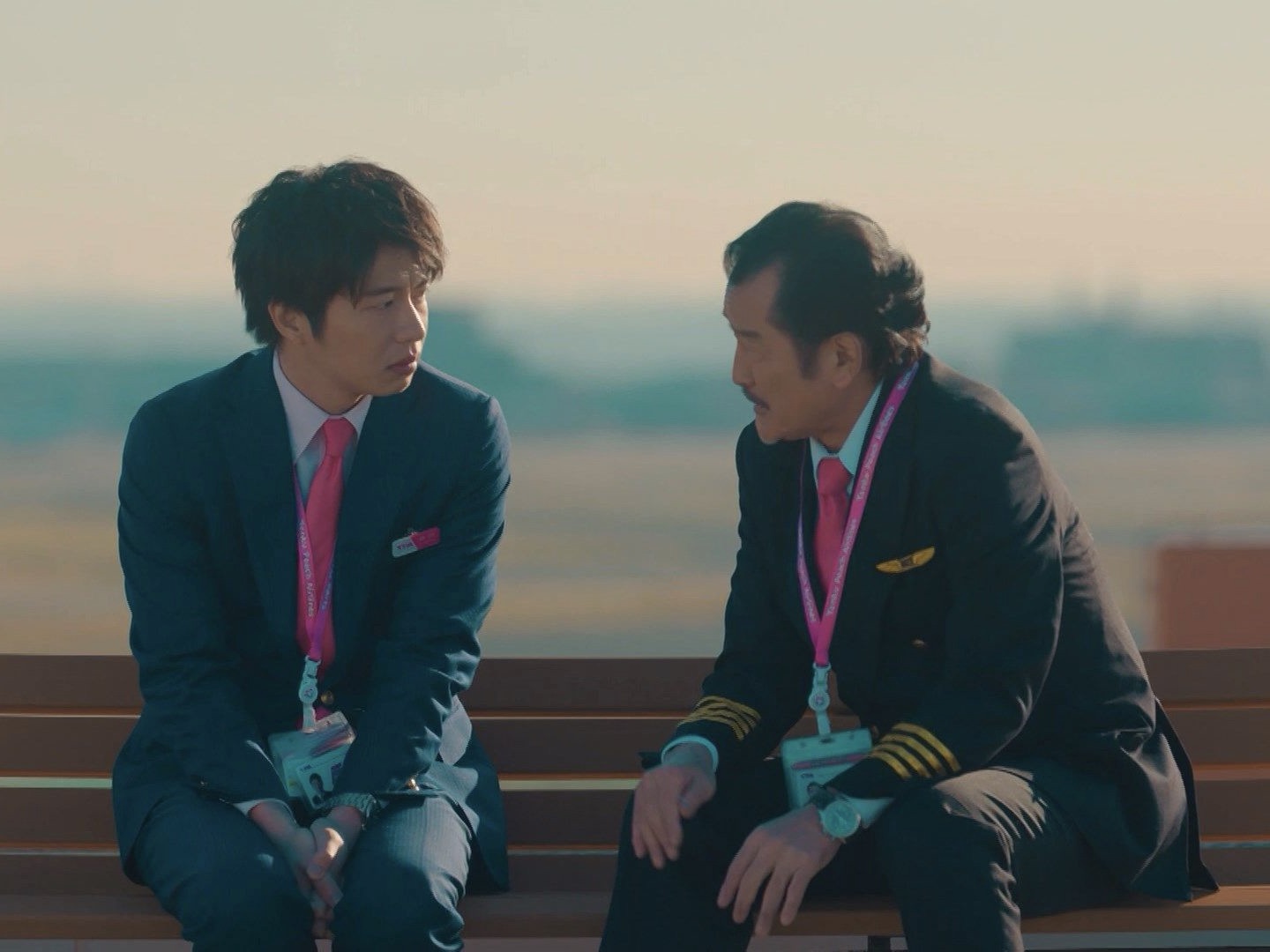From the outside, Japan appears to be open toward people of the LGBTQ+ community, but this is not entirely accurate. This misunderstanding seemingly comes from mass-produced Japanese comics, TV shows, manga and anime that hyperbolically fantasize about LGBTQ+ relationships. In reality, the depiction of non-heterosexual people in Japanese stories are merely a pseudo-tolerance for the LGBTQ+ community. But the 2018 Japanese drama “Ossan’s Love,” however, attempts to break away from the stereotypical fetishization of same-sex couples, and illustrates the dilemma of gay men in Japan.
In the late 1970s, “boys’ love” manga became popular among Japanese comic readers. The published works mainly portrayed the love affairs between young boys caught in “forbidden love.” Gay lifestyles are interpreted as somewhat exotic, and the plots surrounding sex are by no means representative of the complex narratives of being gay.
Whether it’s boys’ love or girls’ love, the representation in manga and anime are not necessarily made for people of the LGBTQ+ community and fail to portray queer relationships with any sort of normalcy or nuance. More often than not, these works are made for the vast heterosexual audiences who over-romanticize gay pairings.
The shunning of the LGBTQ+ community is worse in real life than in pop culture. For instance, two members of Japan’s governing party, the Liberal Democratic party (LDP), have made rather offensive comments regarding LGBTQ+ people. In 2018, Mio Sugita stated in an article that homosexual couples are “unproductive” for the nation because they cannot produce children. Tomu Tanigawa, another LDP member, explained in a TV program that same-sex affairs are “like a hobby,” and same-sex marriages do not need to be legalized.
The statements made by these politicians express the need to provide Japanese society with a fresh set of eyes — a new perspective on LGBTQ+ relationships. Clearly, misunderstanding remains prominent within the society. Whether it is the misleading gay fetishization in pop culture or the ignorant comments of conservative politicians, same-sex affairs are still deemed unorthodox and fictional.
https://www.instagram.com/p/B80Cys4p0lR/?utm_source=ig_web_copy_link
Although it may look like people don’t acknowledge gay couples in society, Japan is slowly moving toward tolerating and embracing the LGBTQ+ community. This is demonstrated through the appearance of “Ossan’s Love” on Asahi TV. It was one of the first TV dramas to feature a “normal” gay relationship that did not fetishize the subject. The first season did not get high ratings, but it was received well enough by the public that it secured a second season, which was released in 2019.
Among the many misrepresentations and misconceptions of gay romance, what makes “Ossan’s Love” different from the others? “Ossan’s Love” reflects both the reality of being gay in Japan and the hope for what Japan could be.
The first season of the Japanese drama tells the story of Soichi Haruta (Kei Tanaka), a straight man in his early 30s. Haruta struggles to find a girlfriend and, instead, finds that two of his male colleagues are in love with him. One of the coworkers is Haruta’s 55-year-old boss, Musashi Kurosawa (Kotaro Yoshida), who was married for 30 years. The other coworker is Haruta’s younger housemate, Ryota Maki (Kento Hayashi).
“Ossan’s Love” illuminates the confusion that Haruta faces when he finds out he is loved by two men.
At the beginning of the series, Haruta expresses revulsion to Kurosawa’s confession of love. Haruta’s childhood friend, Chizu, asks him about Kurosawa’s confession: “Does it bother you because you work together or because he’s older?” To which Haruta frustratingly replies, “Because he’s a man!” Within a single sentence, Haruta implies how “weird” it is for a man to like another man.
He also has the same response after an incident in the bathroom with Maki. However, as the show progresses, Haruta becomes increasingly open to the idea that he could be into men too. As the two colleagues continue to direct their affections toward Haruta, he contemplates his feelings for both. Haruta, who initially loathed the idea of a guy falling in love with him, no longer rejects the concept of dating another man.
https://www.instagram.com/p/B6B1HOPpEvO/?utm_source=ig_web_copy_link
The drama also displays the hardships of coming out. While they’re out in public, gay couples frequently resort to pretending to be “just friends” to avoid public scrutiny and hate. Officially coming out and dating comfortably are two of the difficult tasks for gay men in the series. “Ossan’s Love” demonstrates the significance of the judgments of others, such as family, friends and colleagues, which is central to Japanese culture. Despite confidently knowing his feelings, Haruta still considers the opinions of others around him because being gay remains “odd” in society.
To illustrate, there’s a scene in the drama in which Haruta’s mother explains to Maki her wishes for Haruta’s future. Without knowing or even thinking that Haruta might be gay, his mother wishes that he will marry a nice girl and give her grandchildren soon. The mother’s hope exemplifies the assumption of what an adult male’s future should be like in Japan: married with a good wife and kids. Thus, dating a man is not an option that Haruta’s mother would consider. Even if Haruta had told his mother that he might be gay, there was only a small chance that she would accept it.
In “Ossan’s Love,, romance between two men is not solely a story between young boys in school obsessed with skinship and sex. “Ossan’s Love” is about the normalcy of LGBTQ+ relationships; gay people love, date, break up and experience heartbreak like straight people do. The only difference is the lack of tolerance that gay couples have to face, to the point where they feel the necessity to hide their lives.
https://www.instagram.com/p/B1IOlLuBwLc/?utm_source=ig_web_copy_link
To anyone who has watched the drama, the message of “Ossan’s Love” is clear. The TV series attempts to break the cycle of gay fetishization in Japanese pop culture, so that gay couples are not deemed merely a means for imagination for niche boys’ love and girls’ love readers. “Ossan’s Love” is abolishing this trend and presenting Japanese society with the notion that being gay is not out of the ordinary or a hobby. Haruta’s love story illustrates that gay romance is as real as any other heterosexual love affair.

















